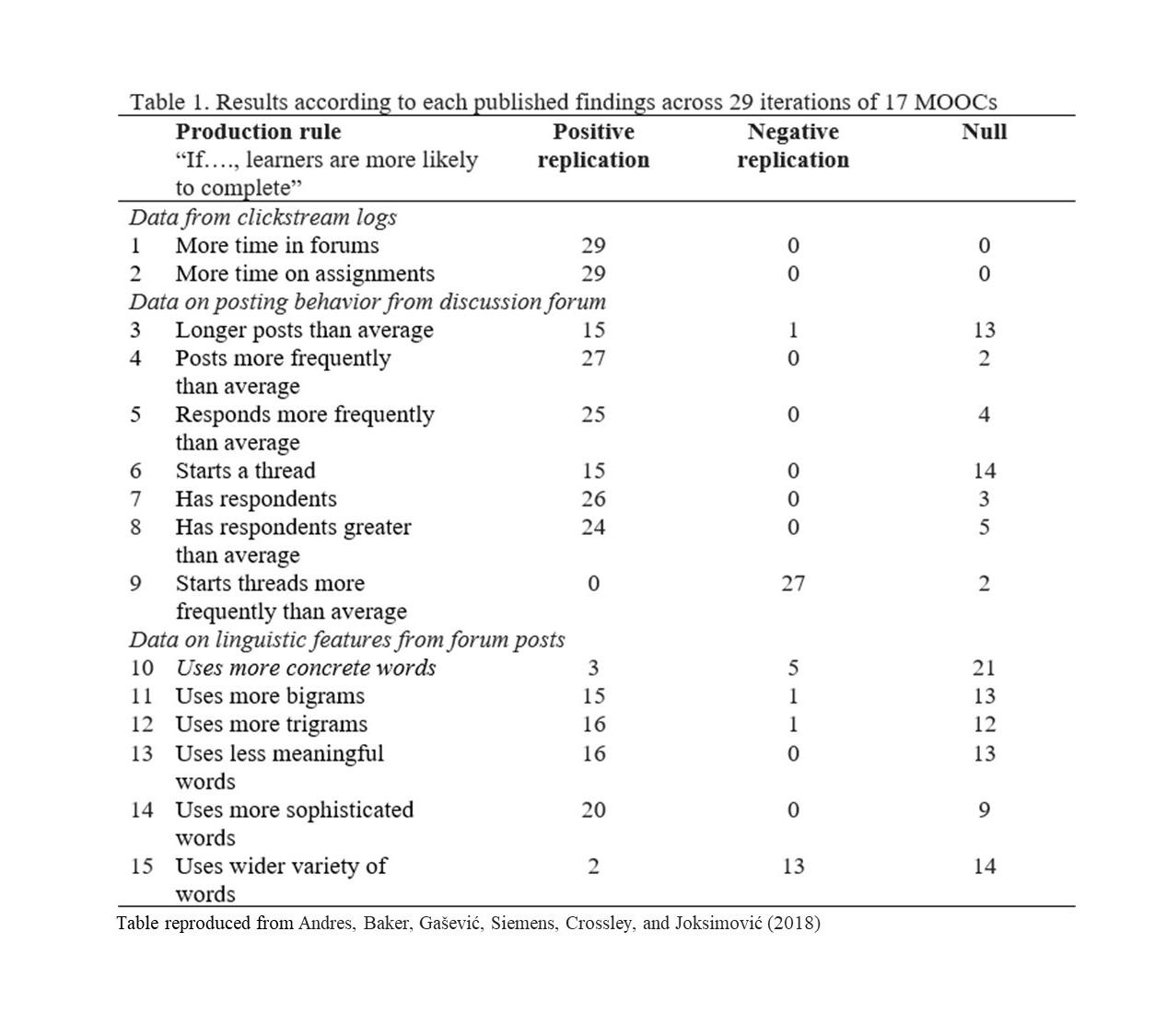Jacqueline Wong
MOOCs are often criticized for their high attrition rates, as such, a large portion of research in MOOCs over the years have been focused on understanding and increasing completion rates. However, results from these studies were often based on single MOOC. This questions whether the results can be generalized to other MOOCs and whether the studies are replicable. Andres, Baker, Gašević, Siemens, Crossley, and Joksimović (2018) implemented the MOOC Replication Framework (MORF) to examine whether 15 published findings from previous research could be replicated over 29 iterations of 17 MOOCs. Table 1 shows the results taken from their study. Their results showed that 12 of 15 findings (production rule 1-8, 11-14) significantly replicated across the data obtained from the MOOCs. Two of the findings (production rule 9 and 15) replicated in the opposite direction and one finding (production rule 10) failed to replicate.
The findings suggested that the behaviors associated with completion rates are considerably common across MOOCs offering different topics. Future work included expanding MORF to look at data from assignment grades or video watching behaviors and examining differences in features of MOOCs where results of the studies failed to replicate.

